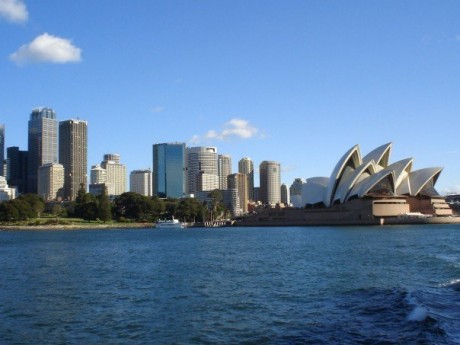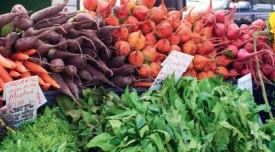Outgeeking Bainbridge
Now, I'd never take on Professor Bainbridge when it comes to wine: I haven't the taste buds. And on corporate law? More fool me to challenge the guy who authors textbooks. But outgeeking? There we're on more equal ground. And I'm afraid that his accusation that George Lucas has sold the soul of Star Wars to the Democrats just rings hollow.
Basically, the good Professor is upset because:
...Lucas betrayed the basic story arc of the Star Wars mythology in order to score these cheap political points. In the original trilogy, Luke struggled against the absolutism of Obi-Wan and Yoda. It was Luke who insisted that there was still good in Vader, which Yoda and Obi-Wan rejected.
The betrayal in question is in having Obi-Wan say to Anakin, after the latter has muttered some you're-for-me-or-against-me line, "Only a Sith thinks in absolutes."
Now, I've not seen the movie yet, and to the best of my knowledge, neither has Prof. Bainbridge, but to my mind his internal critique doesn't hold up. Bainbridge spends a great deal of time talking about how an older (presumably wiser) Obi-Wan was still doctrinaire and absolutist in his consideration of the Force. But if we consider this Obi-Wan to be less mature than Alec Guinness (and who wouldn't), then the plot still hangs together. Obi-wan may just be full of it. And there's no "betrayal" for "cheap political points" so long as the elder Jedi isn't doing anything more than the lightsaber equivalent of Godwin's Law: you know the conversation's over (and someone's limbs are about to go) when somebody mentions the Sith.
So why are so many assuming that Old Kenobi needs to be taken seriously? It seems that the New York Times found political meaning in the film:
"This is how liberty dies - to thunderous applause," Padm observes as senators, their fears and dreams of glory deftly manipulated by Palpatine, vote to give him sweeping new powers. "Revenge of the Sith" is about how a republic dismantles its own democratic principles, about how politics becomes militarized, about how a Manichaean ideology undermines the rational exercise of power. Mr. Lucas is clearly jabbing his light saber in the direction of some real-world political leaders. At one point, Darth Vader, already deep in the thrall of the dark side and echoing the words of George W. Bush, hisses at Obi-Wan, "If you're not with me, you're my enemy." Obi-Wan's response is likely to surface as a bumper sticker during the next election campaign: "Only a Sith thinks in absolutes." You may applaud this editorializing, or you may find it overwrought, but give Mr. Lucas his due. For decades he has been blamed (unjustly) for helping to lead American movies away from their early-70's engagement with political matters, and he deserves credit for trying to bring them back.
Dear goodness, we can only hope. I mean, if Democrats can't do better than Lucas's tin-ear for dialogue for their political bumper stickers, then I suspect the Republicans will get the geek vote. But now the New York Times has done the impossible: it's made me curious about the final Star Wars film.
Let's face it: Lucas is about as subtle as a chainsaw running through a screen door, at least when it comes to dialogue. I'd expect that even if Chewbacca were mouthing Bush-lite rhetoric, you wouldn't need to be Han Solo to figure out the reference. On the other hand, the New York Times could probably scan Beowulf and find hidden anti-Bush meanings.
So who is it? Is George L. taking on George B.? Or is this all a figment of the Times' fevered fantasies? Sadly, I'll have to see the film to find out, because when it comes to a conflict between the Lucas lack of subtext and the Greying Lady's determination to find same, we reach a level of difficulty almost equal to that of the Great Sci Fi Paradox: What happens when a bunch of clueless red-shirts, guaranteed to survive less than three minutes after a beamdown, meets a platoon of Imperial Stormtroopers, who can't hit a barn from inside it?




 Leaving behind the unspoiled countryside of New Zealand we knew things would be different in Australia. But how different, we had no idea.
Leaving behind the unspoiled countryside of New Zealand we knew things would be different in Australia. But how different, we had no idea.  Small Splurges: Even when money is tight, don’t give up on those little things that make you happy while traveling. If it’s an afternoon cup of coffee, a scoop of gelato or an ice cold pint at the corner pub that gets you excited, don’t go without. We began our time in Australia forgoing these small things to try to stay on budget and realized without the small pick-me-ups throughout the day we were left feeling bitter and frustrated. Find other ways to cut corners, but don’t sweat the small stuff.
Small Splurges: Even when money is tight, don’t give up on those little things that make you happy while traveling. If it’s an afternoon cup of coffee, a scoop of gelato or an ice cold pint at the corner pub that gets you excited, don’t go without. We began our time in Australia forgoing these small things to try to stay on budget and realized without the small pick-me-ups throughout the day we were left feeling bitter and frustrated. Find other ways to cut corners, but don’t sweat the small stuff. Food on the Cheap: It’s no surprise eating out is the biggest way to bust your budget. In fact in Australia, even mediocre restaurants are charging $20-30 a plate. Cooking in is obviously the way to go, but even grocery shopping can be a budget breaker. Good news: Most cities in Australia have some really great food markets. Here you’ll find really fresh produce (and local food treasures you didn’t even know existed!) for nearly a third of the price you find in grocery stores. Head to the market in the afternoon to get the best prices (prices drop dramatically after the midday rush) or consider hitting up grocery stores for late night specials. After 7 p.m. you’ll see they often drop their prices on meats and produce, too, to get rid of fresh food before the day’s end.
Food on the Cheap: It’s no surprise eating out is the biggest way to bust your budget. In fact in Australia, even mediocre restaurants are charging $20-30 a plate. Cooking in is obviously the way to go, but even grocery shopping can be a budget breaker. Good news: Most cities in Australia have some really great food markets. Here you’ll find really fresh produce (and local food treasures you didn’t even know existed!) for nearly a third of the price you find in grocery stores. Head to the market in the afternoon to get the best prices (prices drop dramatically after the midday rush) or consider hitting up grocery stores for late night specials. After 7 p.m. you’ll see they often drop their prices on meats and produce, too, to get rid of fresh food before the day’s end.
Comments
Posted by: Steve | May 17, 2005 1:18 AM
Posted by: New Blog | May 17, 2005 2:45 AM
Posted by: Len Cleavelin | May 17, 2005 11:06 AM
Posted by: Tony the Pony | May 17, 2005 3:39 PM
Posted by: Maureen | May 18, 2005 9:23 AM
Posted by: Len Cleavelin | May 18, 2005 11:10 AM
Posted by: Tony the Pony | May 18, 2005 4:04 PM
Posted by: Dave! | May 23, 2005 12:14 PM
Posted by: Anthony | May 23, 2005 5:10 PM